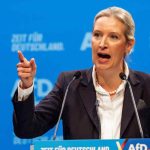But while the EU granted approval for use in all people over the age of 18, several European countries have advised against giving the jabs to people over 65, citing lack of evidence that it was effective among the elderly.Swissmedic said a meeting of its external advisory body on Tuesday had confirmed its interim assessment of the AstraZeneca vaccine data.“The data currently available do not point to a positive decision regarding benefits and risks,” it said.“To obtain a conclusive assessment, the applicant will among other things have to submit additional efficacy data from a Phase 3 trial under way in North and South America, and these will have to be analysed.“As soon as the results have been received, a temporary authorisation according to the rolling procedure could be issued at very short notice,” it added.‘QUASI-INEFFECTIVE’Although the European Medicines Agency recommended the AstraZeneca jab for adults of all ages last week, several countries have advised against administering it to older people.Germany has said it will not advise over 65s to get it, Italy also recommended alternatives for people aged over 55 and Poland has authorised its use for under-60s only.In France, where President Emmanuel Macron said last week that the AstraZeneca jab was “quasi-ineffective,” a lab will start producing a rival vaccine by US firm Moderna.And another French lab will begin making the Pfizer-BioNTech vaccine in April, said Industry Minister Agnes Pannier-Runacher.
Mr Macron pledged earlier this week that four French sites would begin making vaccines soon, as the government drew sharp criticism over an inoculation drive that has started slowly.French pride has also taken a hit after its pharma giant Sanofi said its COVID vaccine would not be ready until later this year.Further adding to global supply, China said it plans to provide 10 million doses of COVID-19 jabs to the WHO-backed international vaccine distribution program Covax.HOW ASTRAZENECA JAB WORKS BESTAstraZeneca’s COVID-19 vaccine works better if there is a three month time lag between the first and second doses the latest trial results show.The original human clinical trials found the vaccine was 62 per cent effective when the second dose was given 28 days after the first.The new research shows efficacy climbs to 91.7 per cent when there is a three month time lag between doses.And, it found just a single dose of the vaccine offered considerable protection.
NED-2139-Oxford-covid-vaccine
Three weeks after being given a single dose of the vaccine it had an efficacy rate of 76 per cent and measurements over a 90 day period showed the efficacy rate did not wane.“Vaccination programs aimed at vaccinating a large proportion of the population with a single dose, with a second dose given after a 3 month period is an effective strategy for reducing disease, and may be the optimal for rollout of a pandemic vaccine when supplies are limited in the short term,” the study authors said. The trial also confirmed the vaccine was 100 per cent effective in protecting against severe disease, hospitalisation and death.COVID ‘GROUND ZERO’: WHO INVESTIGATES WUHAN LABWorld Health Organisation experts have inspected a Chinese laboratory in Wuhan that some US officials said could have been the source of the coronavirus, as countries around the world pin their hopes on vaccines as a way out the pandemic.Russia is working to increase production of its Sputnik V jab in foreign countries after a report showed strong results for it.And British pharmaceuticals giant GlaxoSmithKline and German biotech firm CureVac said they were teaming up to jointly develop a vaccine with the potential to counter multi-variants of COVID-19.Vaccines are seen as the only way out of the pandemic that has infected nearly 104 million, left more than 2.2 million dead and devastated the global economy.A WHO team searching for clues about the virus’s origins went to the Wuhan Institute of Virology, one of the most-watched stops on a politically sensitive trip to the central Chinese city where the virus was first detected.
Peter Daszak, one of the experts, tweeted that the team had an “extremely important meeting today with staff” and a “frank, open discussion.” Nevertheless, top WHO officials, including members of the team, have played down the chances of finding definitive answers on the trip, including how the virus jumped from animals to humans.“It is very unlikely that (on) such a short mission, (we) would have a very advanced understanding or definite answers” about the origins of the virus, WHO team member Hung Nguyen-Viet told reporters from Wuhan.The trip follows months of calls led by the United States for an independent, transparent probe into how the disease exploded into a once-in-a-century pandemic.One theory circulated in the early days of the pandemic — pushed by then-US President Donald Trump and some officials in his administration — was that the virus had leaked from the high-security lab in Wuhan, though there has been no evidence of it.
The US-secretary of state Mike Pompeo insisted last year that there was “significant evidence” that the virus came from the lab, while releasing no proof and acknowledging that there was no certainty.The lab in question, which is affiliated with the central government-run Chinese Academy of Sciences, is the only one in mainland China equipped for the highest level of biocontainment, known as Biosafety Level 4 (BSL-4).BSL-4 labs study the world’s most dangerous pathogens, for example, highly transmissible, fatal, non-curable viruses, of which the novel coronavirus is theorised to be. Shi Zhengli, one of China’s leading experts on bat coronaviruses and deputy director of the Wuhan lab, raised some eyebrows in a June 2020 interview with Scientific American magazine in which she said she was initially anxious over whether the virus had leaked from the facility.
But subsequent checks revealed that none of the gene sequences matched the viruses held by the lab, Shi said, adding: “I had not slept a wink for days.” She later said she would “bet her life that (the new coronavirus) had nothing to do with the lab”, according to Chinese state media.Chinese state broadcaster CGTN downplayed the purpose of the WHO team’s visit by saying the experts would “visit the national biosafety laboratory and exchange ideas with experts of the institute on their daily work, international scientific co-operation, anti-epidemic efforts and contribution”.China has faced criticism at home and abroad for playing down the initial outbreak and concealing information when it first emerged in Wuhan in December 2019.China is also determined to put the focus on its recovery from the outbreak, and the WHO team has already toured a propaganda exhibition celebrating China’s recovery from the pandemic.UK PASSES 10 MILLION MILESTONEMore than 10 million people have received a first dose of a COVID-19 vaccine in Britain, according to government statistics published on Wednesday.The health ministry said 10,021,471 people have had a jab since the start of a mass vaccination campaign in early December.A further 498,962 have had a second dose.British Prime Minister Boris Johnson, who has set a target of vaccinating 15 million of the most vulnerable by mid-February, called the figures a “milestone”.He told a Downing Street press conference the figures included nearly 90 per cent of people aged 75 and above in England, and all elderly residents of care homes.“There are many people and groups responsible for the UK’s vaccination program,” he said, heralding everyone from scientists to delivery drivers to pharmacists for their roles.“And it is thanks to their effort — the most colossal in the history of our National Health Service — that we have today passed the milestone.” Britain has been hit hard by the global health crisis, and on Wednesday recorded another 1,322 deaths within 28 days of a positive test, taking the overall toll in the outbreak to 109,335.
A further 19,202 positive cases were recorded in the last 24 hours. In all, nearly 3.9 million people have had the disease.British Health Secretary Matt Hancock called the 10 million mark “hugely significant”, as the government seeks a way to lift lockdown measures in the weeks ahead.“Every jabs makes us all a bit safer — I want to thank everyone playing their part,” he wrote on Twitter.Britain was the first Western nation to approve the use of the Pfizer/BioNTech jab outside a clinical trial, and has been administering doses alongside one developed by Oxford University and AstraZeneca.A third, from Moderna, has also been approved and will come on stream in the coming months. Regulators are currently studying trial data from a fourth developed by Novavax.
NED-3118-Covid-country-performance
SPUTNIK V BOOSTHopes for ending the pandemic were boosted by the publication of final-stage trial results showing that Russia’s Sputnik V vaccine is 91.6 per cent effective against symptomatic COVID-19 cases.Russia and several other countries rolled out the vaccine last year, amid scepticism about its quality and concerns that it had been rushed.But the results published in The Lancet, a leading medical journal, put it at par with Western-developed vaccines.“In the very near future there are plans to establish production in foreign countries, which will satisfy the demand from more and more countries,” Kremlin spokesman Dmitry Peskov told reporters.
Sputnik V has the advantage of being relatively cheap and can be stored at normal refrigerator temperatures, unlike the below-freezing storage required for shots from Pfizer and Moderna.Spain said it was “open” to using Sputnik V if it is approved by European regulators.German Chancellor Angela Merkel, citing “good data” for the Russian jab, said “every vaccine is welcome in the European Union”.But in Britain, a spokesman for Prime Minister Boris Johnson dodged questions as to why he was mum on Sputnik V, despite previously being quick to hail the success of rival jabs.“Our focus is on now getting those vaccines that we’ve ordered out to people as soon as they’ve been deemed safe and effective, and they have passed all the trials,” Mr Johnson’s spokesman told reporters.At the same time, a study showed that Britain’s own Oxford-AstraZeneca vaccine — which has come under scrutiny over its effectiveness for elderly people — significantly reduces virus transmission and is highly protective after a single dose.“It slows transmission by around two-thirds, so it categorically supports the strategy that we’re undertaking,” Health Secretary Matt Hancock told BBC radio.
Vaccination Rates
JAPAN UNVEILS ‘TOUGH’ OLYMPICS RULES Olympics organisers have unveiled the first of a series of “playbooks” aimed at holding the coronavirus-postponed Tokyo Games safely, warning that rule breakers could be kicked out.Sports officials will be allowed to skip quarantine as long as they monitor their health for 14 days after arriving in Japan, according to the 32-page document.During those 14 days, however, the officials will not be allowed to travel outside the Games bubble or watch events as a spectator.The playbooks are aimed at building confidence that the Games can go ahead even if the pandemic is not under control by the opening ceremony on July 23. The rules are set to be updated in April and again in June.The first of the guides is aimed at sports officials, with versions for athletes, fans, media and others to follow in the coming weeks.“We have learned a lot from the best practices of other events,” said Olympic Games Executive Director Christophe Dubi of the International Olympic Committee.“It is the mantra of all of us — the Games have to be safe, for each stakeholder group, for each participant. It’s a question of responsibility.” Officials will be subject to a series of rules during their stay in Japan, including mask-wearing, complying with contact tracing and staying within designated areas.
They will have to present a detailed itinerary of their planned movements for their first 14 days in Japan and stick closely to it on arrival.And they will have to monitor and record their health for two weeks before going to Tokyo.Details on rules for athletes were still being finalised, but officials said they would be tested for COVID-19 at least every four days, and would be tested before leaving their country and again on arrival in Japan.Rule breakers will face “consequences that may have an impact on participation” at the Games, with “repeated or serious failures” potentially leading to offenders being kicked out.“These Games in many respects will be different,” said Olympic Games Operations Director Pierre Ducrey at the IOC.“There will be a number of constraints and conditions that the participants will have to respect and follow, which will have an impact on their experience, particularly when it comes to social aspects,” he told reporters at a press conference presenting the rule book.Doubts about the Games have grown as countries have been forced to re-enter lockdowns, with large parts of Japan currently under a state of emergency.Japan’s government approved a month-long extension of its state of emergency on Tuesday, with measures now running through March 7 in parts of the country.
UNPRECEDENTED PLUNGE IN TRAVELGlobal air passenger traffic plunged by 66 per cent in 2020 due to travel restrictions imposed over the COVID-19 pandemic, an industry group said on Wednesday.The International Air Transport Association (IATA) also warned that the emergence of new, more transmissible variants of the coronavirus were hurting the prospects for recovery this year.Given that travel restrictions applied mostly to international travel, domestic passenger traffic fared better, dropping by 49 per cent, compared to 76 per cent for foreign passenger traffic.The travel restrictions imposed during the first wave of the pandemic saw global passenger traffic fall to just five per cent of its normal level, with airlines forced to park planes on runways because not enough space was available.While traffic picked up during the summer, in December it was down by 70 per cent, thus finishing out the year below average.IATA, which unites 190 airlines, did not formally lower its outlook for a pick up in traffic this year thanks to a rollout of vaccines, but warned the emergence of new coronavirus darkened the outlook.In Spain, foreign visitors to Spain plunged 77.3 per cent in 2020 from a year earlier, official data showed on Wednesday, as the pandemic and travel restrictions decimated tourism.Spain received 19 million international tourists last year, national statistics office INE said, down from 83.5 million in 2019 when it was the world’s second-most visited country after France.The last time Spain had so few foreign tourists was in the 1960s under former dictator Francisco Franco.
Powered by WPeMatico





